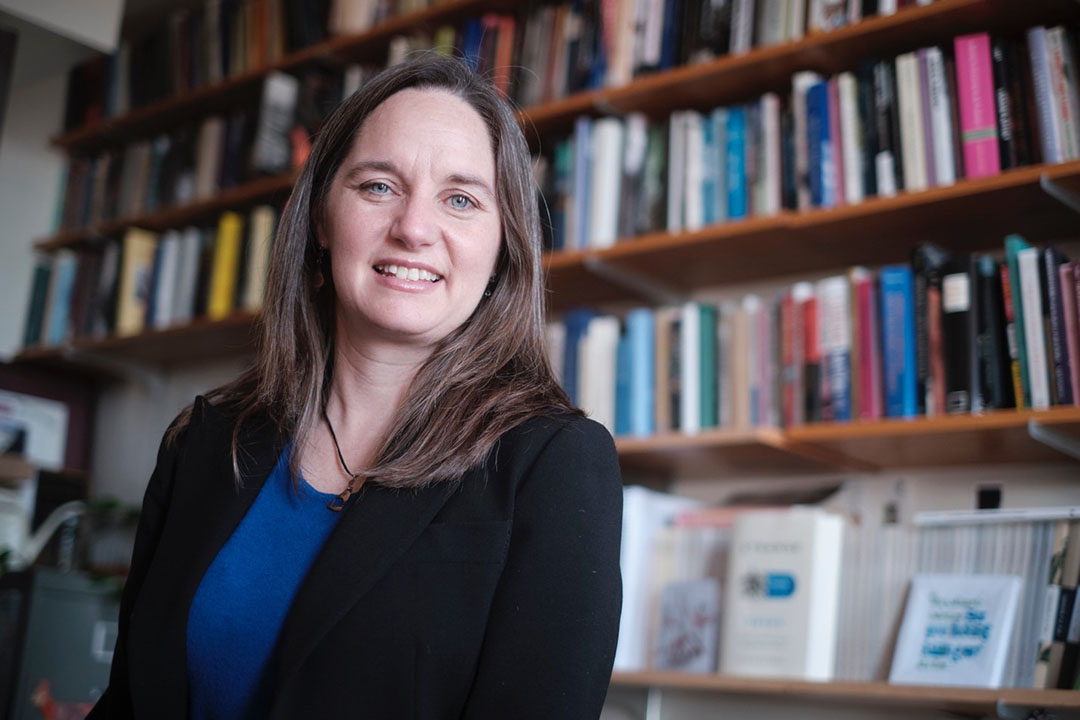
USask project creating COVID-19 archive to share, learn from critical experience
SASKATOON – A diverse team led by University of Saskatchewan (USask) researcher Dr. Erika Dyck (PhD) is creating a digital archive of provincial residents’ experience with the COVID-19 pandemic to ensure that their stories and material can prepare the province to better cope with future health crises.
The public archive project has been awarded a Partnership Development Grant of $200,000 over two years by the Social Sciences and Humanities Research Council of Canada (SSHRC).
“At its core, we want to understand the legacy of COVID-19 for Saskatchewan people because we will be confronting its effects for years to come,” said Dyck, professor and Canada Research Chair (CRC) in the History of Health and Social Justice in USask’s College of Arts and Science.
The team is soliciting submissions from the public and working with dozens of community partners to collect stories, artwork, letters, news articles, and digital materials produced about the pandemic.
The project will train students and work across disciplines to interview Saskatchewan people, including nurses, teachers, business owners, students, and journalists to document how the pandemic has affected our culture, Dyck said. Researchers also want to gather perspectives from vaccine scientists, ICU physicians and nurses, employees at foodbanks, Prairie Harm Reduction, and marginalized people.
The pandemic has been remarkable for social media’s influence on how people received information and how they organized responses to COVID-19, Dyck said. To help the archives project, USask digital historian Dr. Jim Clifford (PhD) is capturing digital records of media releases, twitter feeds and social media campaigns that shaped Saskatchewan’s COVID-19 experience.
USask Digital Initiatives Librarian Craig Harkema is using web archiving methods to systematically capture digital information from websites and public social media to include in the overall repository.
The goal is to create a qualitative dataset that will enable future researchers to measure the diverse social, political, and cultural impacts of this critical point in provincial history, and help Saskatchewan and Canada prepare for when global pandemics are projected to occur more frequently, Dyck said.
The interdisciplinary team includes co-applicants from USask and the University of Regina, nearly a dozen collaborators, and four community-engaged partner organizations
Saskatchewan is an important focus for this community archive project, Dyck said, because although the province performed well during the first wave of the pandemic, by the fourth wave and later it held the unenviable distinction of having among Canada’s highest infection rates and death rates, even having to transport COVID-19 patients to Ontario for intensive care.
Dyck used some money from her CRC to establish the archives project even before she received the SSHRC grant because work had to start while memories remained fresh. As well, she said, it’s clear from the history of infectious diseases that once a crisis passes the acute phase, people become reluctant to talk about it and simply want to move on.
To combine qualitative social sciences and humanities-based approaches with quantitative health research to understand how COVID-19 has impacted communities, Dyck’s team is working co-operatively with a team co-led by USask’s Dr. Nazeem Muhajarine (PhD). That project, Building Back Better, is funded by the Canadian Institutes for Health Research (CIHR) and is studying the wider social and health impacts of COVID-19 across Saskatchewan.
-30-
For more information, contact:
Victoria Dinh
USask Media Relations
victoria.dinh@usask.ca
306-966-5487

